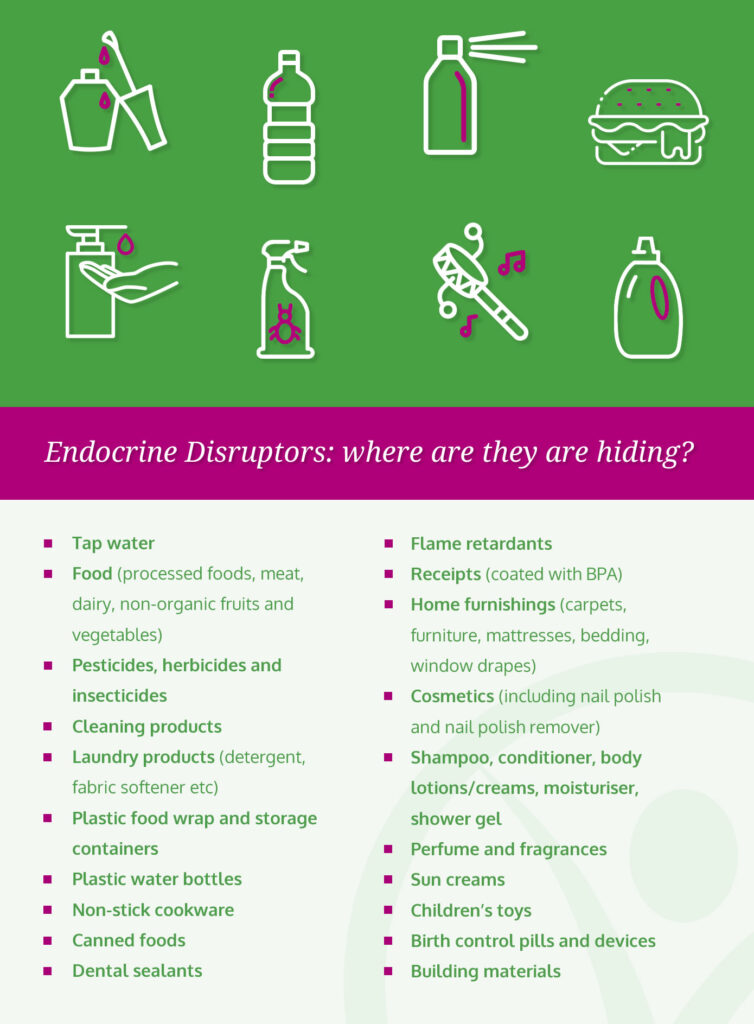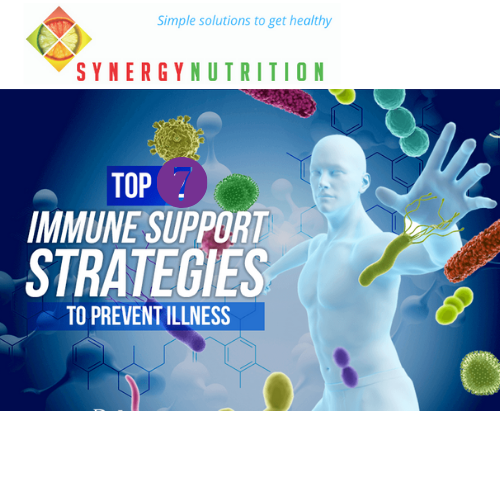Hormone disruptors, also known as endocrine disruptors (EDCs), are synthetic chemicals and compounds that hinder the body’s endocrine (hormone) system by producing adverse effects on the endocrine glands. They interfere with the production, transport, metabolism and excretion of natural hormones in the body causing a host of hormonal issues including infertility, endometriosis, early puberty and hormone-related cancers. EDCs also negatively affect growth and development, immune function, the brain and nervous system.
Atrazanine – herbicide, BPA, dioxins, glycol ethers in solvents, paints, cleaning agents, soaps. Parabens, phthalates and PCB’s are all examples of common endocrine disrupters in the environment.
Xenoestrogens are a type of endocrine disruptor that specifically exert oestrogen-like effects as their chemical structure is nearly identical to that of natural oestrogen. They are found in plastics, tap water, pesticides, birth control pills, cosmetics and personal care products such as shampoo/ conditioner, body creams and shower gels.
The infographic below also shows where they reside.
Chemical free living
Avoid using plastics completely and this includes plastic water bottles, food packaging like cling wrap and food storage containers. Even BPA-free plastic products -which are marketed as safe may pose a health risk as they contain a substance called BHPH which may also be harmful to health. Use glass storage containers, glass or stainless-steel water bottles and reusable beeswax wraps or vegan soy wax wraps for food wrapping.
Eat more plant-based foods and limit your consumption of meat. Meat is high in dioxins and pesticides; these chemicals accumulate in the fatty tissues of animals. Plant foods are highly nutritious and contain plenty of vitamins, minerals and antioxidants that are vital for health.
Opt for organic produce especially fruits and vegetables and animal-derived products eggs, meat, milk and cheese to avoid toxic pesticides, herbicides and other endocrine-disrupting chemicals. Grow your own vegetables, fruit and herbs at home. Even if you don’t have a garden, you can still grow produce like herbs, tomatoes and strawberries on window sills and balcony containers.
Drink filtered water using a high-quality water filter to avoid toxins including bisphenols (BPA), phthalates, pesticides and xenoestrogens.
Swap your non-stick cookware for stainless steel or cast iron to avoid exposure to PFAs.
Avoid canned food as cans are lined with BPA to prevent corrosion which leaches into the food. Use fresh, dried (beans, lentils etc) or frozen foods instead.
Start reading labels so you know exactly what’s in the food you’re eating and the products you’re putting on your skin and in your home.
Choose fragrance-free, chemical-free and eco-friendly personal care products or consider making your own natural skincare products.


